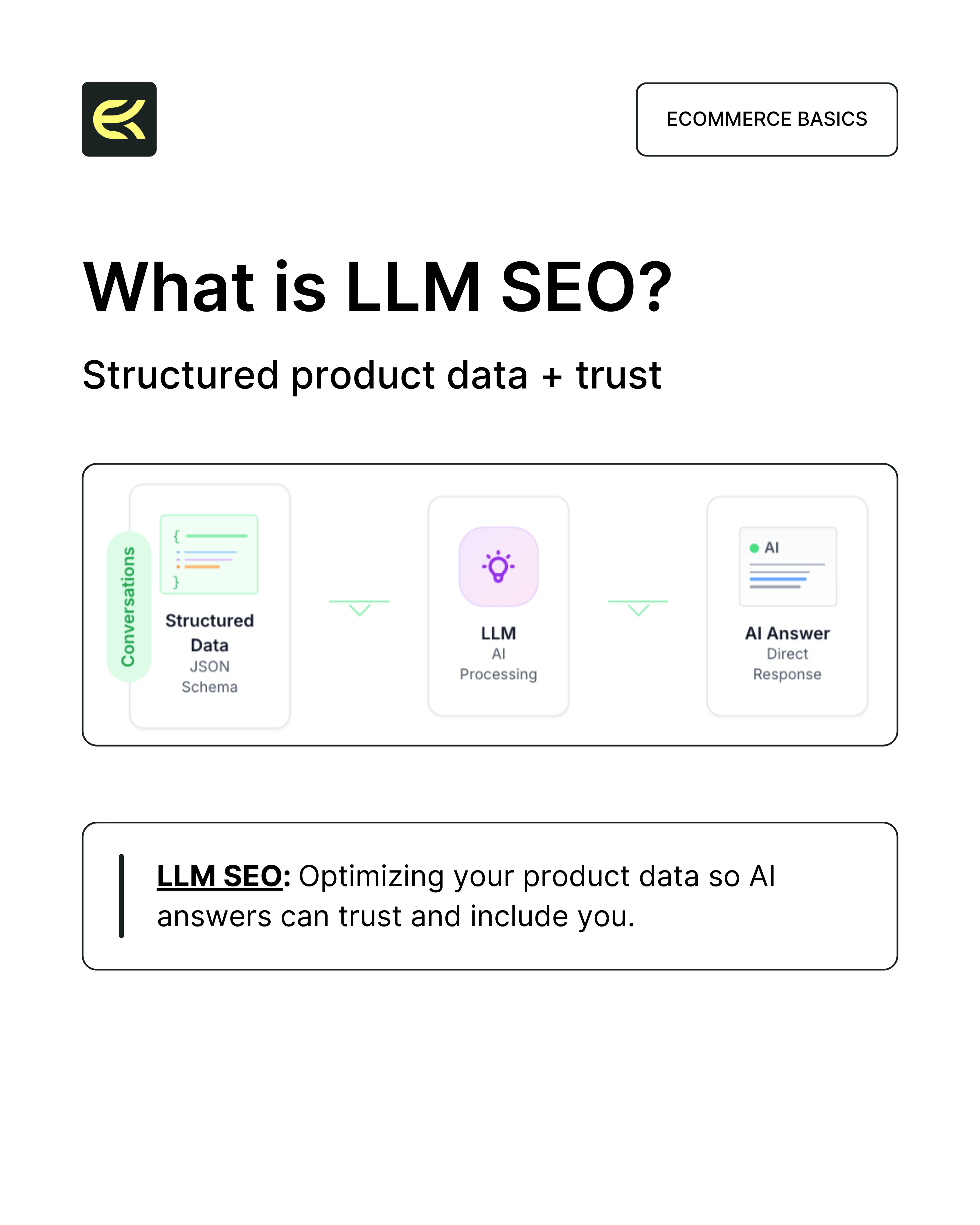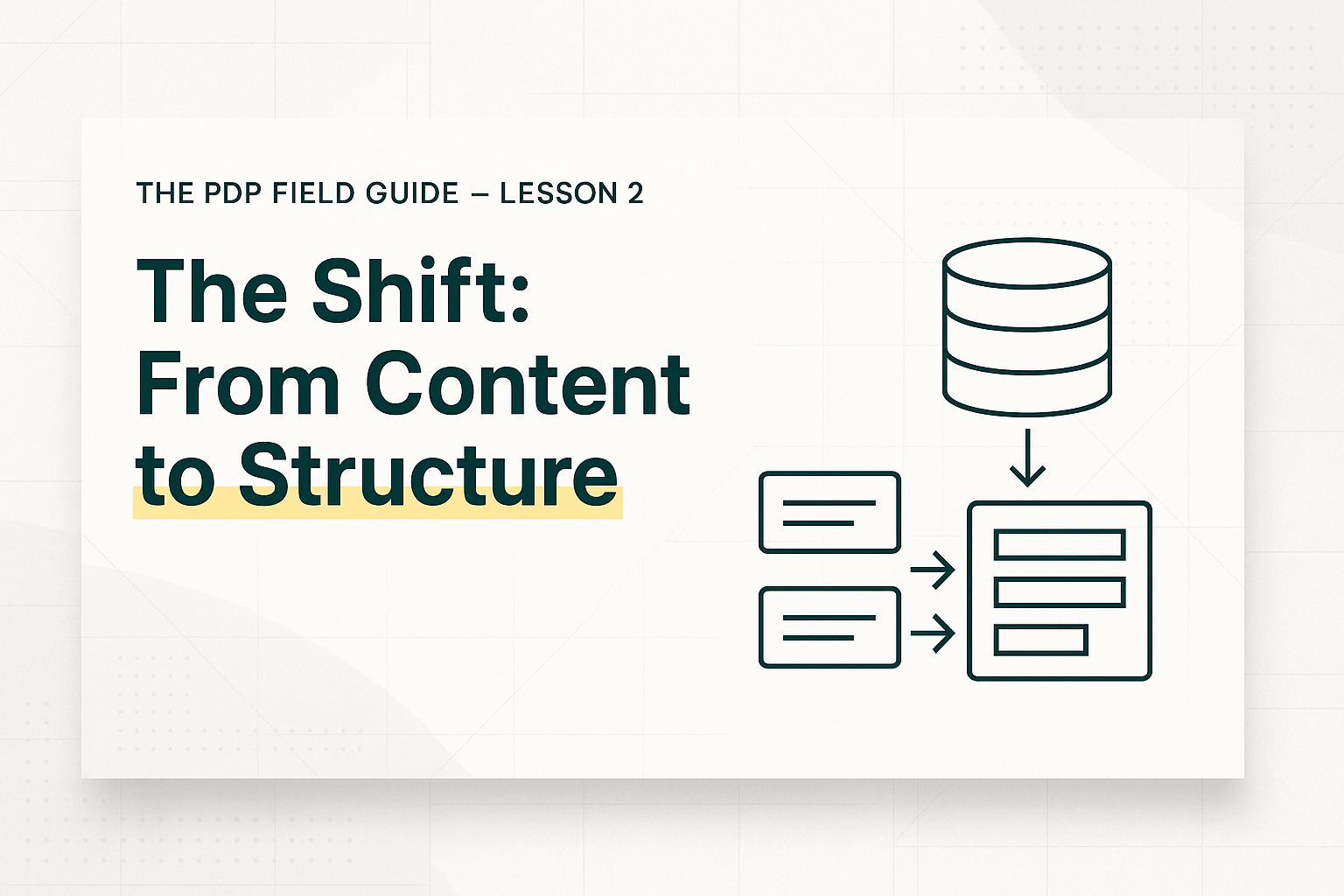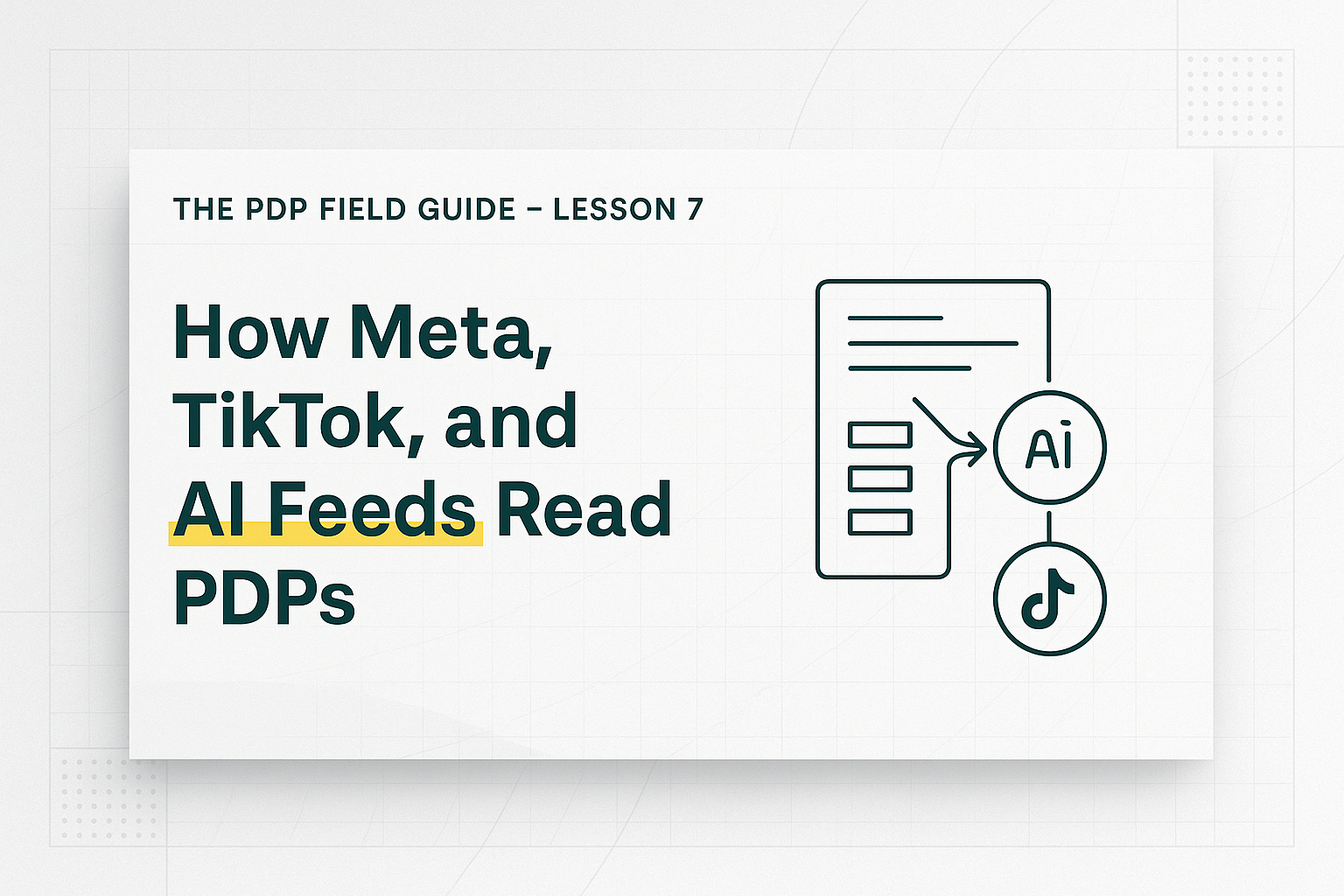.png)

AI and LLMs Sharpened the SEO Game

⚡ TL;DR — Structured Data Decides Who Shows Up
- LLM SEO = structured product data + trust. Win with clean Product Schema and validated fields.
- Bad data = invisible. Good data compounds → featured directly in answers where buying decisions happen.
- The leverage gap is widening: poor data collapses, strong data scales. Automate with PDP Automation Workflow so you’re LLM-Ready.
AI and LLMs sharpened the SEO game. 🔪
Traditional SEO relied on crawlers scanning pages, ranking them, and surfacing results in the SERP.
LLM SEO is different:
Conversations → Structured Data → Direct Answers.
When someone asks a question inside ChatGPT, Perplexity, or Claude, the LLM isn’t running a Google-style crawl. It’s pulling from structured product data, trusted schema, and authoritative mentions—and lifting that directly into the answer.
Why Structure Matters More Than Ever
Poor product data is riskier than ever.
Messy fields, schema errors, or stale feeds mean exclusion. You don’t get flagged—you simply disappear from the response. See: Schema Errors, Feed Drift, Data Completeness.
Good data, on the other hand, is more powerful than ever.
Validated fields, clean schema, and parity across systems make your brand a trusted source. That’s when your PDP shows up directly inside an AI answer. See: Product Schema, Structured PDP Fields, Field Consistency.
The Goal Hasn’t Changed
The goal is still the same:
Be visible where decisions happen.
What’s changed is the selection process. Crawlers once ranked pages. Now conversations trigger structured data pipelines that feed directly into AI answers. It’s harder to fake your way in. The rich get richer; the poor get poorer.
Next Step
The question to ask is:
👉 Are you part of the answer training set?
See how EKOM makes structured product data scalable: Book a demo → ekom.ai/demo


